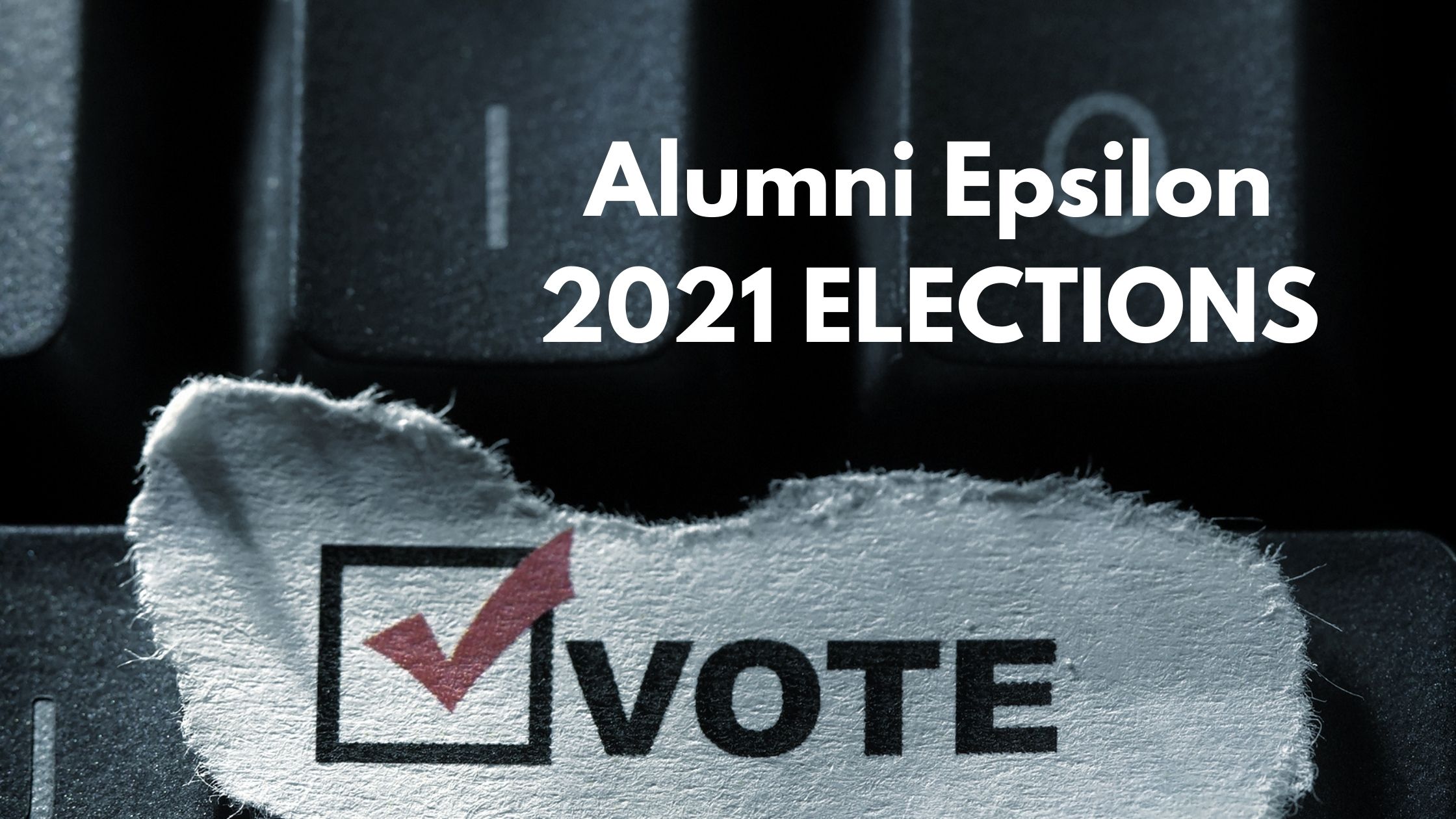Four Reasons to Attend the Online Convention this Year
Peggy Wood
For undergraduates and graduates attending the Sigma Tau Delta Convention can be a huge deal, particularly if your paper has been accepted. You can sometimes receive financial compensation for traveling from your school, get bragging rights, and can network with chapters and people from across the world. But what about for us post-graduates here in the Alumni Chapter? What do we get?
While it’s hard to say how this convention will go, some amazing things are happening that make it worth the ticket price that can benefit you. Here are four that you may want to consider when deciding whether or not to attend:
1. The Guest Speakers
Some of the best parts about the convention are the opportunities to hear the featured speakers talk about their works and writing. It can be a great benefit to those looking to get published, to learn more about the industry, and to experience other forms of writing than one’s own.
This year we have Karen Auvinen, author of this year’s Common Reader Rough Beauty: Forty Seasons of Mountain Living, and Michael Branch, the author of Pulitzer Prize-nominated John Muir’s Last Journey: South to the Amazon and East to Africa. Both are award-winning authors with works and experience in poetry, prose, and essay writing. You may find that hearing these speakers provides an excellent opportunity to develop your own writing skills.
2. The Relaxed Scheduling
This year the panel schedule is much more relaxed than previous conventions. There will only be some meet and greets between regions and the Student Leadership events on Thursday and Friday. Roundtable panels take place for a few hours on Friday, March 26th, and Saturday, March 27th. All content will then be available to registered convention attendees for 90 days following the event.
On Friday, there will also be awards announced in addition to a presentation by the first featured speaker, Karen Auvinen, in addition to a Student Leadership-sponsored event and the Alumni Networking meeting. (You definitely don’t want to miss the Alumni Meeting!) On Saturday, there will be a reading by our second featured speaker, author Michael Branch.
3. Awesome Panels
This year there are only 24 roundtable panels, and all of them are looking to be interesting. There are panels on linguistics, transformative identities, children’s literature, professional development, and so much more.
As with all convention panels, attending and watching presentations can provide the opportunity to learn about areas of research you may have never considered and ideas you may not have thought of in works you’ve read before. It can also provide invaluable advice and inspiration for one’s own writing, whether that be in fiction, academia, or something else.
4. Networking (Definitely attend the Alumni Epsilon Meeting!)
At least in my biased opinion, the best part of the convention is ultimately the networking opportunity. Prior to and post-graduation, conventions have benefited those who attend socially, academically, and professionally. Some of my closest friends are those I met at conventions, and while the digital experience may be different from running around a hotel/city with chapter members, it’s still a gathering of people passionate about reading, writing, and other nerdy-topics that we all enjoy.
The online convention offers us a unique and rare chance to create new relationships that may open valuable opportunities and experiences to draw from in the future. I’m sure we’ll all leave the convention a little inspired and perhaps transformed by the experience… fitting the theme of this year: Metamorphoses.
Peggy Sue Wood is the current Alumni Epsilon Chapter’s President as well as a freelance editor and writer in the Greater Los Angeles Area. Before becoming a freelancer, Peggy studied English Literature and Creative Writing at Chapman University in Orange, CA. In her free time, she writes and publishes notes, tips and tricks, and other information on what she’s learned about writing and publishing, free-of-charge for those interested in entering the field of editing/writing or looking to improve their understanding of the industry. To learn more, you can visit Peggy online at peggysuewood.com.
It’s Time for Alumni Epsilon Elections
Chyina Powell
It is 2021 and that means it is time for Alumni Epsilon elections yet again. Due to all of the weirdness of last year, we were forced to learn how to hold elections virtually. Although it was tedious, it is actually a stroke of luck because now we know how to handle it and all those who were unable to go to in-person convention can now vote or run for a position themselves.
What positions are available?
President
The President is head of the Strategic Planning Committee. They are in charge of all operational procedures of the chapter including but not limited to: calling meetings, contacting the Central Office, and calling meetings. They are also responsible for upholding the chapter’s Constitution.
Treasurer
The Treasurer is head of the Finance Committee. They will oversee all the finances including but not limited to our bank account, the merchandise table at conventions, our online stores (including our Redbubble account). Furthermore, they are in charge of ensuring online orders are taken care of. During in-person conventions, this person will be in charge of getting sponsorship for our Alumni Epsilon Chapter meeting. Lastly, they are in charge of the writing contests and other fundraisers that the chapter hosts throughout the year.
Historian
The Historian is head of the Membership Committee. The duties of the Historian include taking detailed minutes at each meeting as well as collecting photographs (at in-person Conventions) and some graphic design (throughout the year) and keeping a record of all chapter events. The Historian also supports the Communications Chair. The Historian is tasked with bringing the role into the digital age in order to document and promote chapter image.
Please note, that Alumni Epsilon board members are required to be in attendance at conventions (both in-person and virtual) and have availability for virtual meetings each month. Please keep this in mind if you are considering applying to leadership.
It has been a year, so it is understandable if you need a refresher. Terms last for two years.
How do you apply?
Well, there are two ways, you can either check out our Facebook group and click the link there or you can complete this Google form.
How do you vote?
Much like last year, voting will be done via our chapter’s Facebook group.
Getting to be involved with the board has been a great experience (even with the lack of a convention last year) because everyone is kind, friendly and the perfect level of nerdiness to make anyone feel right at home. So, if you feel like you would be a good candidate for any of these positions, don’t be shy and apply!
Chyina Powell is an editor and writer. She is owner of Powell Editorial and the founder of the international Women of Color Writers’ Circle. She has been a member of Sigma Tau Delta since 2014 and is the current Treasurer of the Alumni Epsilon Chapter.
In Hindsight, 2020 Was a Year for the Books
Mary Paplham
In 2019, I read 85 books. ( . . . Okay, so technically I finished number 85 in the wee hours of the morning of January 1, 2020—but it was still 2019 somewhere!)
Although I’ve never set concrete reading goals—my goal has always been simply to read as many books as possible, in order to make as big a dent in my ever-growing TBR list as possible—my hope that year had been to read 100 books, a number I have not achieved since middle school. Alas, by the end of summer, I knew 2019 would not see that hope realized.
So as I stumbled off to bed at 3:30 a.m. on January 1, just before the first dawn of the new year, I thought—no, I determined—that 2020 would be my year to finally break 100.
I got through 63. And a half. (But who’s counting?)
Even before the pandemic upended 2020, I was off to a slow start: by mid-March, I hadn’t finished even ten books. The pandemic was merely exacerbating a pre-existing condition.
I fell into a pattern: I would plow through a book in two or three days, and then not pick up another for a week or two. Even when I should have had extra time to read, like during a two-month furlough, I read no more than before—I found solace instead in sleeping and streaming; while my mind couldn’t focus on words on a page, it relaxed in front of pixels on a screen.
But what my reading list lacked in quantity, it made up for in quality. Though I have always read widely in terms of age and genre, last year’s rude awakening to the breadth and depth of my White privilege and the insidiousness of White supremacy culture led me to reexamine my reading habits. As I realized just how much my inherent Whiteness and immersive education in White literary canon have affected my reading list, I began making a conscious effort to diversify it. In 2020, out of the 63.5 books I read, nine were by eight different authors of color (six Black, one of Taiwanese heritage, and one of Pakistani), up from seven books—out of 85—by just three different authors of color in 2019.
Perhaps less importantly—but more significantly personally—I also read more non-fiction this year than ever before. Despite my love for history and learning about the world around me, I never used to read non-fiction for fun, apart from the occasional memoir in graphic novel form. My last summer in college, I surprised myself by reading and loving Lauren Hillenbrand’s Unbroken, but as a work of narrative non-fiction, it read like fiction. In 2019, after binge-watching all seven seasons of Gilmore Girls in just two months, I got myself to read Lauren Graham’s Talking as Fast as I Can on the premise that it was short and wouldn’t be a huge loss of time if I didn’t enjoy it. (I did.) Earlier in the year, I had read two graphic memoirs, which made for a total of three non-fiction reads. In 2020, I read nine works of non-fiction and one autofiction, and none of them were graphic novels. About half of these reads were chosen spontaneously (because why not read a 464-page oral history of The Office?), but the others were deliberate efforts to diversify my reading and/or educate myself; to that end, I also joined a virtual book club, which was responsible for three of my non-fiction picks.
As I write this, it’s a month into 2021, and I’ve started off fast out of the gate: I am on my tenth book already, and even if I can’t sustain this pace all the way through the year, I have high hopes for a higher quantity—and higher quality—of reads than I’ve achieved in recent years.
But while reading more books means I can read more diverse books, my track record over the last two years has shown that that will only be the case if I make it so; after all, my TBR list is TBD by me. Although I may not be able to guarantee that I’ll get through more books this year, I can guarantee that more of them will be diverse.
And that is a goal worth setting.
Mary Paplham is a writer, editor, and graphic designer from the greater Green Bay, WI, area. She is a 2017 graduate of St. Norbert College, where she earned her BA in English, emphasis in Creative Writing, and minored in Communications and Classical Atudies. Currently, she is the college managing editorial intern for W. W. Norton and works at her local public library. When she’s not working, she enjoys reading too many books, watching too much TV, and eating too much chocolate.








How do you get on the Facebook page for Sigma Tau Delta. Is this a private Facebook set up for Sigma Tau Delta only?
I am an Alumni member, but do not use regular Facebook.